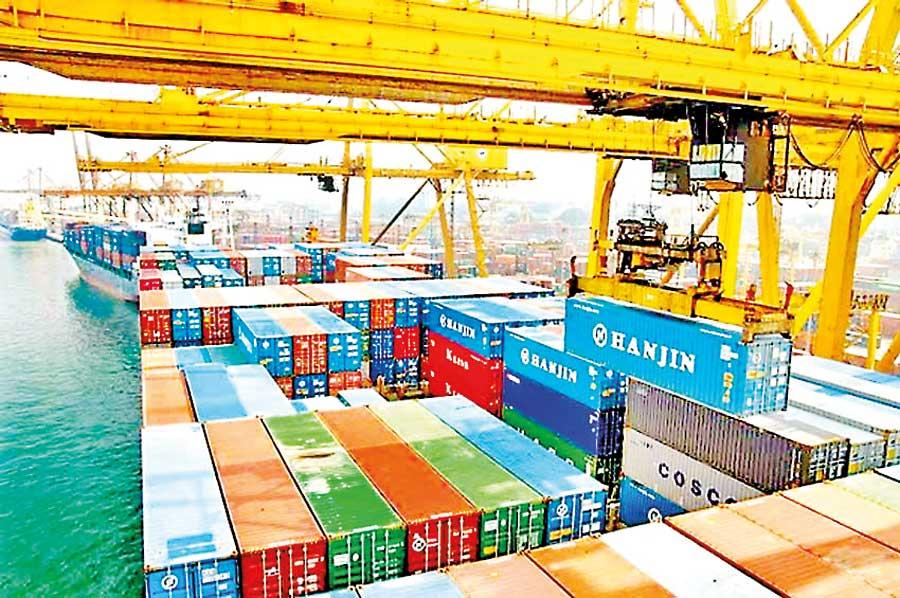02 Jul 2024 - {{hitsCtrl.values.hits}}
- Stress need for SL to have marketable products
- Assert FTA negotiations must not only focus on tariff concessions
- Call for local production sector to be revamped

Amid the intensified government efforts to capitalise on trade liberalisation through new preferential agreements, international trade experts stress the need for structural changes in Sri Lanka’s production sector before pursuing new pacts.
Despite decades of efforts, the country’s production sector, particularly the small and medium-sized enterprise ventures, remains inadequately prepared to meet the modern trade requirements and is yet to fully leverage the benefits of global networks, experts say. Various challenges such as policy inconsistencies and a predominant inward focus over exports have hindered Sri Lanka’s competitiveness and integration on the global stage.
Ceylon Chamber of Commerce Secretary General and CEO Buwanekabahu Perera pointed out that under the trade agreements, Sri Lanka essentially gains tariff concessions but the most important element is to have a marketable product.
“Whether we have that competitiveness in terms of our input cost and the final output is a question we need to address. We need to educate our sector and take it forward, working both with the government and chamber,” he said addressing a recent forum on trade agreements.
Reflecting similar sentiments, Dr. M. Ganeshamoorthy of the University of Colombo’s Economics Department, whose research focus areas include international economics and trade, noted that the national economy has been focused on producing for the local market rather than tradeable items. This is a key reason Sri Lanka has failed to reap the benefits of its free trade agreement (FTA) with India.
“Even after many years of liberalisation, Sri Lanka’s products are not competitive in the Indian market, whereas the Indian products are more competitive in the Sri Lankan market. This indicates that merely opening or signing FTAs will not produce palpable benefits without a profound change in the production structure, particularly in the tradable sector,” said Dr. Ganeshamoorthy.
Sri Lanka currently has six active FTAs and another five under negotiation, with about four at preparation level. This demonstrates the country’s active push towards engaging with larger groups to benefit from market access.
“Even if the markets are there, you have to produce to access the market. The major issue is not just accessing the market but improving the productive capacity of the economy. Based on that, the country’s exports should enter the intended market,” reiterated Dr. Ganeshamoorthy.
He stressed that Sri Lanka needs to carefully design its policies, especially in the production sector.
“The production sector has to be revamped. Just signing off FTAs and waiting for the benefits will not help,” he emphasised.
24 Dec 2024 9 hours ago
24 Dec 2024 24 Dec 2024
24 Dec 2024 24 Dec 2024
24 Dec 2024 24 Dec 2024
24 Dec 2024 24 Dec 2024